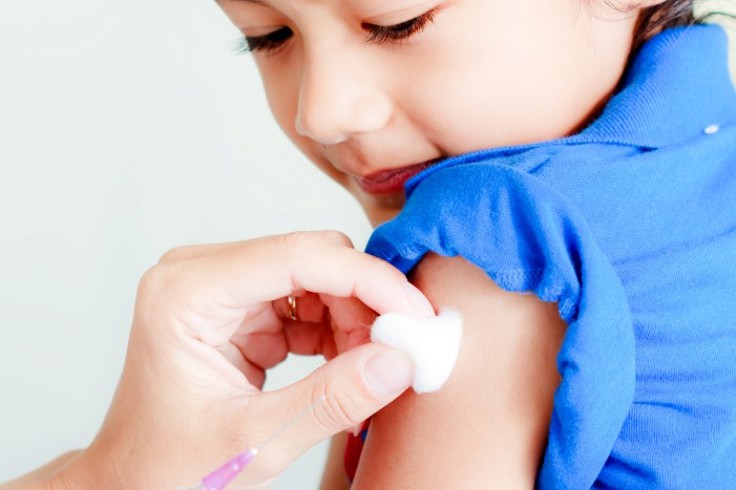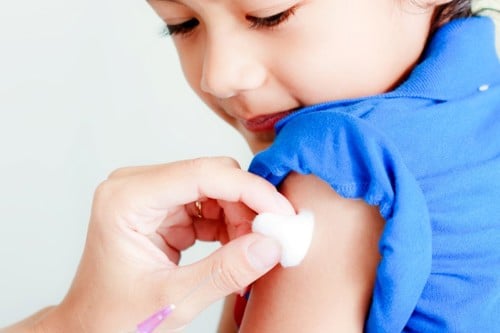Before and after vaccination
Article
|Updated
Before the vaccination, the public health nurse will ask whether the child is healthy and if there were any reactions after previous vaccines. Most children show little or no reactions to vaccines.
Before vaccination
Before vaccination, the public health nurse will ask if the child is healthy and if they have had reactions to earlier vaccines. Remember to inform the nurse if the child has an allergy or other health problems, or if the child has recently received medicine or a vaccine outside the programme.
In addition, the nurse must be informed if a mother has received medicines that affect the immune system during pregnancy or breastfeeding because it may be necessary to delay vaccination with some vaccines.
Vaccinating a child who has a cold or is otherwise slightly under the weather is not dangerous. However, it is normal to postpone the vaccination in the event of an acute illness and with a fever greater than 38 ˚C.
Children who have had unusual reactions after previous vaccinations and children with serious or prolonged illnesses should be assessed by a doctor before vaccination. In some cases, it may be necessary to deviate from the programme.
After vaccination
Most children have little or no reaction after vaccination. A fever greater than 39 ˚C and/or reduced general condition may be a sign of a serious disease and is not necessarily a reaction to the vaccine. Therefore, always contact a doctor if you are concerned about the child.
Reactions to vaccines (side effects)
- Redness, swelling and pain at the injection site occur from time to time after all vaccines that are injected and can last for a few days.
- Mild fever, restlessness, crying, sleepiness, feeling unwell or a lack of appetite occurs in up to one in ten children after vaccination. A fever greater than 39 ˚C is uncommon.
- In small children, a rapidly rising fever can lead to fever cramps. Fever cramps are not dangerous but you should contact a doctor to rule out other acute disease.
- Pallor, feeling unwell or fainting after vaccination is more common in older children than in infants and is almost always due to the child reacting to the injection and/or the pain or to the situation.
- An allergic reaction to vaccines can occur in rare cases. The most dangerous allergic reactions come quickly after vaccination. Therefore, the child should wait at the public health clinic for at least twenty minutes after vaccination.
Norwegian Immunisation Registry SYSVAK
The purpose of SYSVAK is to maintain an overview of vaccination status for the individual and to keep up with vaccination coverage on a nationwide basis. For the public health service, the registry is also a tool for ensuring that all children are offered a satisfactory range of vaccinations.
All vaccines that are given must be recorded in SYSVAK. There is no opportunity to refuse registration of vaccines given through the Childhood Immunisation Programme. Unregistered vaccinations given earlier will be registered retrospectively.
Name, Norwegian personal identification number, vaccines given and vaccination dates are registered in SYSVAK. The information is stored in accordance with applicable rules for personal privacy in the health service.
- The SYSVAK-regulation (lovdata.no)

